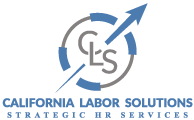California had begun easing into a phased reopening plan when COVID-19 cases started surging, which caused the state to pause or even roll back its reopening. Employers, who had started reopening and recalling their workforces, have started asking new questions about how to protect their workers while still doing business.
Here are some of the most frequently asked questions and their answers.
-
Can an employer take an employee’s temperature before they start work?
Generally, no, an employer cannot take an employee’s temperature as it is considered a medical exam.
However, due to the COVID-19 pandemic, effective March 2020, the Equal Employment Opportunity Commission and California Department of Fair Employment and Housing (DFEH) are permitting employers to take employees’ temperatures if specifically related to COVID-19. Employers should carefully consider hygiene and social distancing precautions for any temperature-taking program.
Employers should also bear in mind that taking an employee’s temperature is subject to American with Disabilities Act confidentiality requirements.
-
Are we required to notify our employees if we learn an employee tested positive for COVID-19?
If an employee tests positive for COVID-19, employers should immediately contact their county health officials and the California Department of Public Health. These agencies will direct employers on what steps they need to take.
Employers should be mindful of employees’ privacy, and not divulge names. Employers can alert employees with a general statement that an employee has tested positive for COVID-19, and other employees may have been exposed.
-
As an “essential” business, can we require our employees wear protective gear, such as masks, when they report to the workplace?
Employers can require employees to wear personal protective equipment but should make reasonable accommodations where appropriate.
For example, if an individual is in a wheelchair and is required to wear a gown, the employer should find a gown that will fit, and if an employee has a latex allergy, the employer should provide nonlatex gloves.
-
What laws must we follow if we have more than 100 employees and, due to COVID-19, we must lay off 20 percent of our workforce?
On March 17, 2020, the governor issued an executive order suspending the 60-day notice requirement under the California Worker Adjustment and Retraining Notification Act (WARN Act). Employers must still provide written notice as soon as practicable with a statement of why the notification period was reduced and include information for obtaining unemployment insurance benefits. This notice-requirement suspension is limited to business circumstances related to COVID-19.
The California WARN Act applies to employers with 75 or more full-time employees who have been employed for at least six months of the previous 12 months.
-
Do we have to pay employees who have children no longer in school (due to school closures) and who are not working?
Employers have several options to consider.
– In California, employers with 25 or more employees working at the same location must permit employees to take time off for certain child-related activities, including to address a child-care provider or school emergency. Such an emergency includes closure or unexpected unavailability of the school or child-care provider.
– Employees may take up to 40 hours each year for school activities. The leave is usually limited to eight hours per month, but employees may be able to use all 40 hours for the current school closures.
– Employers can require the employee to use existing vacation, PTO or other personal leave, while on school activities/emergency leave, unless prohibited by a collective bargaining agreement. Depending on the employer’s policies, the employee may also take the leave unpaid. According to the California Labor Commissioner, a parent may also choose to use paid sick leave.
– Another option is the Families First Coronavirus Response Act (FFCRA), which went into effect on April 1 and expands employee benefits and protections related to COVID-19, including a new federal paid sick leave law and an emergency expansion of the Family and Medical Leave Act.
– Finally, if possible, employers may offer remote work options. The FFCRA provisions related to school closures are only applicable to employees who cannot work remotely.
-
How do we pay exempt and nonexempt employees who are working remotely?
Pay obligations don’t change simply because an employee (exempt or nonexempt) is working remotely.
If an exempt employee does any work in a week, the employee must be paid. If, however, the exempt employee doesn’t do any work in the week, the employee’s weekly salary may be reduced.
For nonexempt, hourly employees, all hours worked must be paid. Employers should accurately track any time worked and pay for overtime, if it occurs. Employers also should ensure that nonexempt employees take uninterrupted, off-duty meal and rest breaks — especially since employees may forget to take their breaks in a home setting. For example, employers might suggest employees set an alarm to remind them to take their breaks.
Establishing a remote work/telecommuting policy is a great way to communicate your expectations to your remote employees, particularly when it comes to keeping an accurate record of their hours worked, including overtime, as well as taking their meal and rest breaks.
-
Can an employee use California Paid Sick Leave due to COVID-19 illness?
Yes. If the employee has paid sick leave available, the employer must provide such leave and compensate the employee under California paid sick leave laws.
-
Can an employer require a worker to provide information about recent travel to countries considered to be high-risk for exposure to the coronavirus?
Yes. Employers can request that employees inform them if they are planning or have traveled to countries considered by the Centers for Disease Control and Prevention to be high-risk areas for exposure to the coronavirus. However, employees have a right to medical privacy, so the employer cannot inquire into areas of medical privacy.
-
Can I require an employee who previously tested positive for COVID-19 to submit a negative COVID-19 test result before returning to work?
At the moment, there’s no guidance that allows employers to require employees to submit a negative COVID-19 test result as a condition of returning to work.
In a frequently asked question and answer from April 23, 2020, the Equal Employment Opportunity Commission (EEOC) stated that an employer may require a doctor’s note certifying fitness for duty from an employee.
-
When can an employee who previously tested positive for COVID-19 return to work?
To help determine whether an employee may return to work, employers can refer to the COVID-19 Employer Playbook For a Safe Reopening that outlines virus infection timeframes.
For example, a symptomatic employee who tested positive for COVID-19 may return to work if “at least 1 day (24 hours) has passed since last fever … and improvements in symptoms (e.g., cough, shortness of breath); and, at least 10 days have passed since symptoms first appeared.”
-
If my employer is open, but furloughs me on or after April 1, 2020 (the effective date of the FFCRA), can I receive paid sick leave or expanded family and medical leave?
No. If your employer furloughs you because it does not have enough work or business for you, you are not entitled to then take paid sick leave or expanded family and medical leave. However, you may be eligible for unemployment insurance benefits. You should contact your State workforce agency or State unemployment insurance office for specific questions about your eligibility. For additional information, please refer to https://www.careeronestop.org/LocalHelp/service-locator.aspx.
-
If my employer closes my worksite on or after April 1, 2020 (the effective date of the FFCRA), but tells me that it will reopen at some time in the future, can I receive paid sick leave or expanded family and medical leave?
No, not while your worksite is closed. If your employer closes your worksite, even for a short period of time, you are not entitled to take paid sick leave or expanded family and medical leave. However, you may be eligible for unemployment insurance benefits.
Access additional COVID-19-related blogs.

